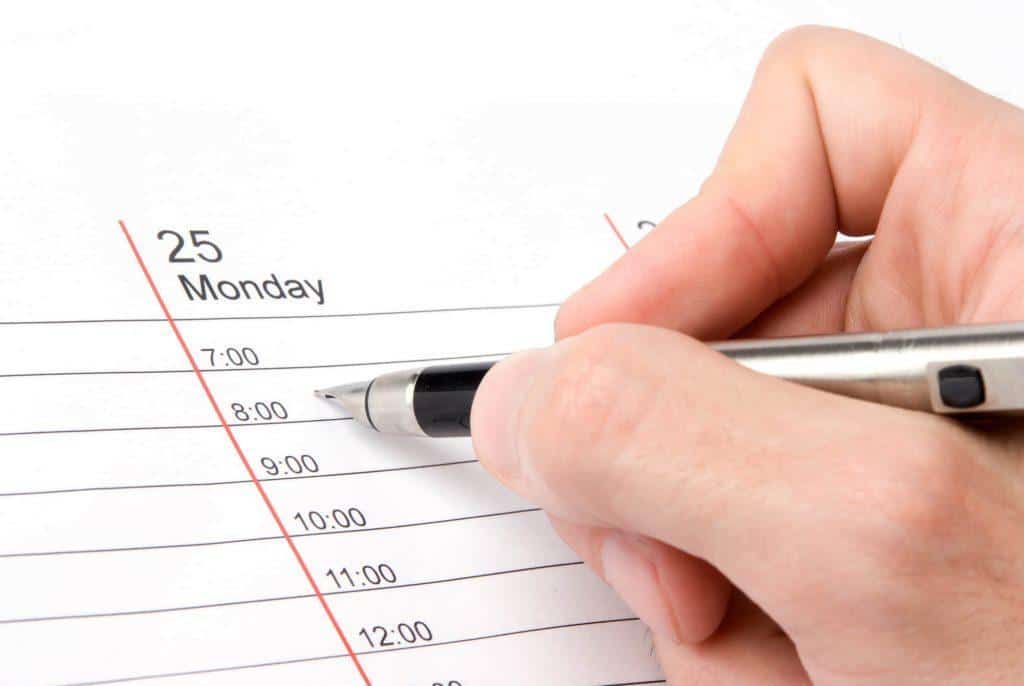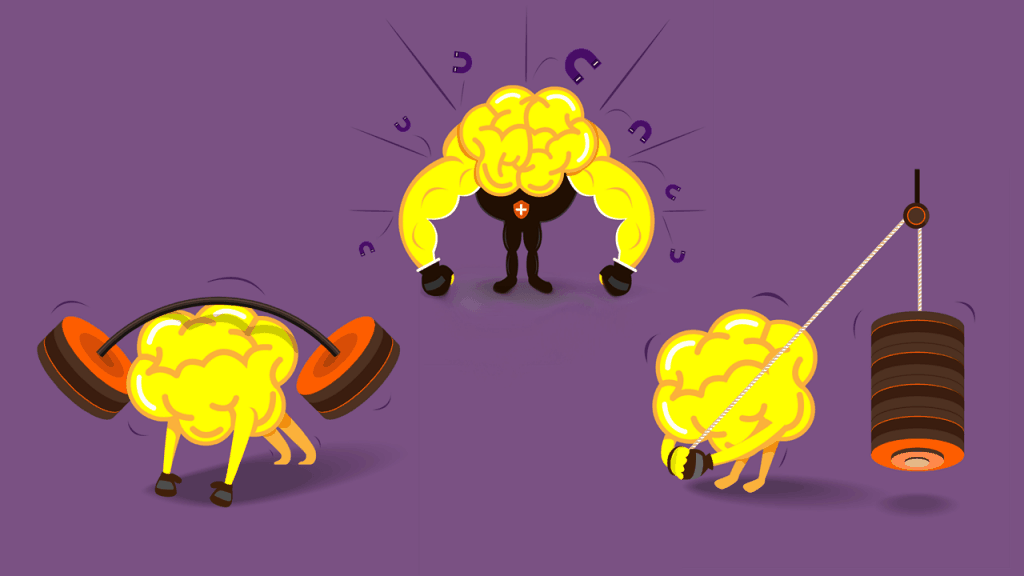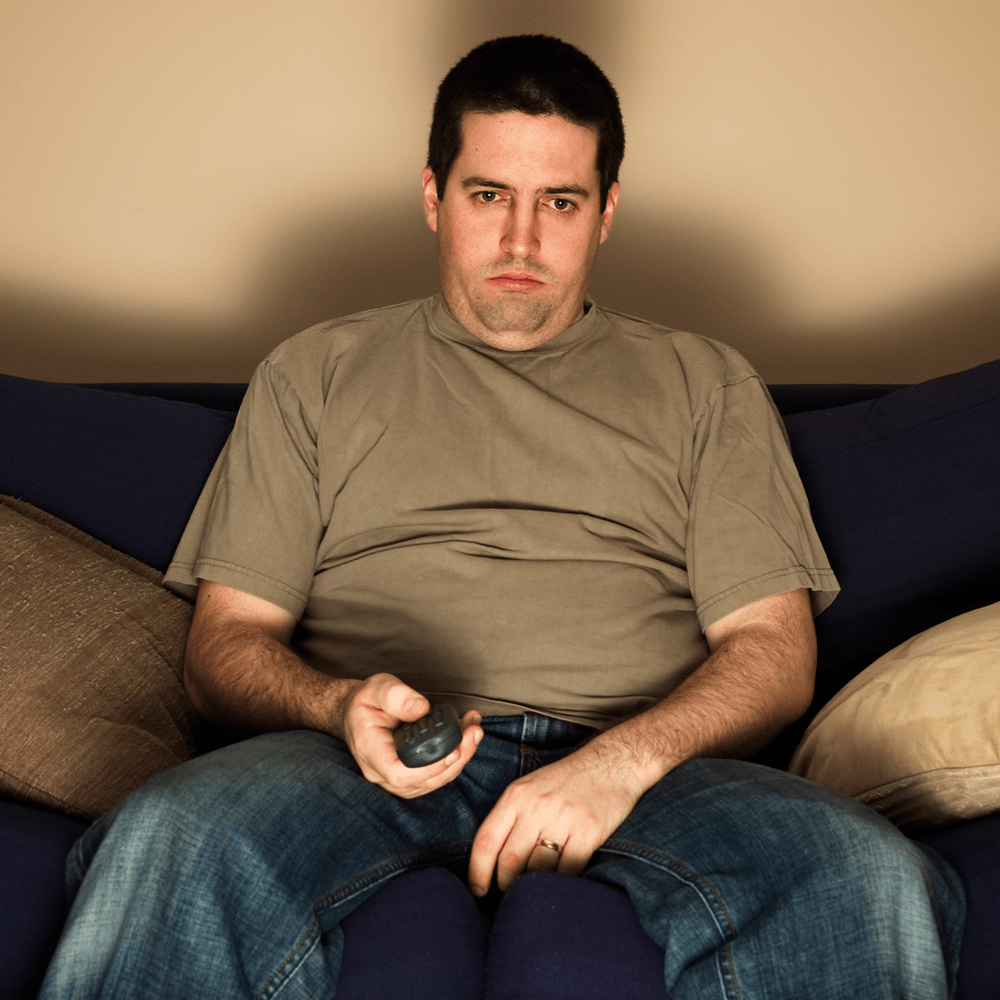You can read this whole post by scrolling down, it's all there.
Or, if you are looking to catch up, you can click through to the most recent part here:
Read Part 1 – Updated May 30, 2016
Read Part 2 – Updated June 13, 2016
Read Part 3 – Updated June 27, 2016
Part 1
Technically, I have ADHD.
I don’t even know what that means, really.
As a kid, I recall getting kicked out of preschool. It was pretty silly — all just some sort of misunderstanding.
Apparently, or should I say “allegedly”, I was pulling some girls hair and I was climbing up the bookcases and jumping from bookcase to bookcase, pretending like I was a monkey.
I wouldn’t stop or utter one human word, even on the car ride home.
I remember, vaguely, having a few issues in school.
Kindergarten was great, because my teacher — and I still remember his name, Mr. Roudebush — kept giving me more challenging assignments, until I was doing double digit addition and subtraction.
But, the rest of school…was not so good.
It didn’t take them very long before they figured out I needed to be on Ritalin.
Medicate and sedate.
I can’t really blame them. I was a bit, well, crazy. I could haunt someone for hours. I could yell and scream and run around causing all kinds of chaos, and I wasn’t about to listen to anyone who was trying to tell me to calm down.
But the Ritalin didn’t last long. I quickly rejected it.
Even at a young age, I knew that I didn’t want to be controlled by some medication.
I wanted to be me. Even if that meant that I was a human pretending to be a dog pretending to be a human, I needed to bark at any adult who tried to talk to me, and I needed to do this without breaking the role for at least two days straight.
I’m still not convinced ADHD actually exists
But if it does, I’ve got it. Definitely.
I mean, here is the “official definition” from the National Institute of Mental Health:
Attention-deficit/hyperactivity disorder (ADHD) is a brain disorder marked by an ongoing pattern of inattention and/or hyperactivity-impulsivity that interferes with functioning or development.
Inattention means a person wanders off task, lacks persistence, has difficulty sustaining focus, and is disorganized; and these problems are not due to defiance or lack of comprehension.
Hyperactivity means a person seems to move about constantly, including situations in which it is not appropriate. When it is not appropriate, excessively fidgets, taps, or talks. In adults, it may be extreme restlessness or wearing others out with their activity.
Impulsivity means a person makes hasty actions that occur in the moment without first thinking about them and that may have high potential for harm; or a desire for immediate rewards or inability to delay gratification. An impulsive person may be socially intrusive and excessively interrupt others or make important decisions without considering the long-term consequences.
Let’s see.
Do I have inattention?
Yes, I’m only writing this blog post now in a focused manner, because I have a Pomodoro timer ticking away, forcing me to sit and write and do nothing else.
Inside my head, a voice is screaming, loudly, “CHECK YOUR EMAIL. WHAT IS HAPPENING ON FACEBOOK. HOLY CRAP YOUR BICEP IS BIG. I WONDER IF YOU SHOULD GET UP AND ROLL ON THE FLOOR RIGHT NOW.”
Even though I’m going against my nature, I naturally want to give up easily and not focus. I certainly like to wander off my tasks.
Ok, next…
Hyperactivity.
Hmm, am I hyper?
I definitely fidget a lot when I sit down. I have been known to wear people out with my activity.
I don’t get into arguments all that often, but if I do, I guarantee that you’ll be calling it a night before I do. I can calmly debate a topic for hours on end.
I saw more of these symptoms as a child than as an adult, though.
Finally, impulsivity.
This is a hard one.
I can certainly be impulsive. Again, it’s difficult to measure, because I seem to have those impulsive…impulsivities…under control. But, I do tend to err towards impulsive behaviour.
On the occasions that I binge eat or binge drink, I take it to the extreme. If you’ve ever seen me play the slot machines and heard me say “just one more,” you also know that I am fighting my nature when I finally walk away — too many hours and “this is the last $20” statements later.
I feel like the general description is a bit toned-down to be “nice.”
The children’s list fit me perfectly when I was a child. I could check off every single one of these items, without a doubt.
- Gets distracted easily and forget things often
- Switches too quickly from one activity to the next
- Has trouble with directions
- Daydreams too much
- Has trouble finishing tasks like homework or chores
- Loses toys, books, and school supplies often
- Fidgets and squirms a lot
- Talks nonstop and interrupts people
- Runs around a lot
- Touches and plays with everything they see
- Is very impatient
- Blurts out inappropriate comments
- Has trouble controlling their emotions.
But, here’s the thing. When I look at that child list, part of me can’t help but say “what the fuck?”
I mean seriously. Half of the things on this list are not “problems,” they are just character traits that are not necessarily “bad.”
I get the impression that many of these so called symptoms don’t belong to someone who needs medication. Rather, they belong to someone who plays by their own rules and won’t be controlled by someone else — who doesn’t feel the need to conform to the oppressive rules of society, to play by their norms.
I mean really, who defines what it means to be distracted too easily? Maybe you're boring as shit and that’s why I don’t want to pay attention to you! My time is too damn valuable to be polite just for the sake of being polite.
Who defines what it means to switch too quickly from one activity to the next? I’ve had the fun and learned all I want from Activity A, now I want to experience Activity B. If other people are slow and easily amused, that is their problem, not mine. So what if it doesn’t coincide with your schedule?
Trouble with directions. F*&% your directions, I’ll do it my way!
Daydream too much? Again, you bore me. I’ve got things going on in my head. Lots of ideas. I need some time to let them run wild. It’s called creativity and imagination. Maybe all your directions and sticking with boring activities has killed this in you, but not in me. I still have aspirations and hope.
Trouble finishing tasks. Ok, I’ll give you that one. But, I really do hate homework. Especially when you don’t tell me why I’m doing it. If I feel like it’s busy work, I’m not exactly motivated to finish it. But, I do have the
tendency to not finish my own tasks as well, as soon as they become boring — so you got me there.
Losing things. Ok, yes I lose shit. But you lose shit too. I’m calling bullshit on this one. You just want to pick on me.
Fidgeting and squirming a lot. It’s called energy. It’s not bad. Are we really going to nitpick fidgeting and squirming? Are we really going to call that a problem? Perhaps, you should just let me stand up and move around. What is that harm in that?
Talking non-stop and interrupting people. That’s called excitement and passion. I don’t mean to interrupt you, but I’m just so damn excited that I have to say what I’m thinking and I can’t get the words out fast enough — I even interrupt myself.
Run around a lot. Where is the emoji for a middle finger when you need one? Seriously. When you are old and fat, and I’m still “running around a lot,” I’ll be the one laughing and giving you your blood pressure medication.
Touching and playing with everything I see? Oh shit, we better call the “don’t touch” police. Let’s not interact with our environment. Perhaps the reason I’m touching and playing with everything I see is the same reason I’m jumping from one activity to the next and getting “easily distracted” or not following directions.
I’m curious. I want to explore the world around me on my own terms. I want to gather as much data as quickly as possible, and move on. I want to take it all in, not just stay at the paper cutting station and cut paper til you tell me I’m done. I gotta glue, I gotta draw, I gotta throw those little cups filled with water at the wall.
And as for being impatient, I’ll be 100% honest. It’s because you are slow and boring. My brain is moving at lightening speed. I already got what you were going to say by the time you spoke the first three words of your sentence. Let’s move on.
Now we get to blurting out inappropriate comments. What exactly is an appropriate comment? Is my comment inappropriate because you don’t like it — or perhaps because it’s the truth? Maybe it has to do with the fact that it doesn’t fit the social norms you try to control children with, and it undermines your authority.
Finally, if someone was telling you that every thought you expressed and your very nature was wrong and bad and needed to be medicated to conform to the right and good expectations of society, I think you’d have some trouble controlling your emotions as well.
So, you got me there… I guess. Asshole.
Whoops. Damn, that was inappropriate. My bad.
Is this really what we are doing to our children?
I don’t think children naturally have ADHD — if it exists.
The ones that get labeled as having ADHD are more often the ones whose wills we failed to break. But if is natural, we should be able to get them to conform (or at least “behave better”) without the use of medication.
We wonder why our society is full of a bunch of brainless zombies, watching TV, posting political rhetoric on FaceBook and killing time until the weekend or when they can punch out of work each day and down a few drinks.
Maybe, just maybe, it’s because the creative, uninhibited, energetic, honest and real child in them was kicked right in the face, and hit with a stick until she timidly crawled into the corner and slept most of the day, like an abused dog.
But, yeah, I don’t know what I’m talking about.
I don’t know, I just get the impression that human beings weren’t meant to live in cages. But, like I said, I could be wrong. Maybe young spirits need to be crushed for society to function properly.
After all, those severely abused dogs usually end up with decent temperaments. They pretty much do what they are told and don’t cause any harm.
But, wait. Isn’t this about how you use your ADHD as an advantage?
Ok, yeah. So I’m ranting a little bit.
I just want to explain to you why–when people ask me why I think ADHD doesn’t exist–I say “I have it, but it doesn’t exist.”
In case you didn’t get the message from what I wrote already, here it is, plain and simple:
ADHD is a bullshit diagnosis for children — and later adults — who don’t conform to the norms of society and refuse to sit down, shut up, and do what they are supposed to do.
Society doesn’t like this and can’t deal with it, so instead of rewarding this undeterred, behavior, we diagnose it and medicate it.
You don’t have to agree with me. But if you don’t, you are wrong.
(Apparently, I’m not alone on this viewpoint.)
Now that you understand that I recognize I have the attributes of ADHD, even though I refuse to acknowledge it as a disability or impairment, I’m going to tell you how I function in society as a person who is much more comfortable not functioning in society and how I actually get shit done.
Cyclops without the visor
I know I’m a bit arrogant and narcissistic, but I like to think of myself naturally as Cyclops without the visor.
My natural ADHD tendencies tend to be quite unrestrained and shoot high energy beams all over the place, destroying anything I look at.
Like I said earlier, I think this is more common in kids than most people think. Humans are naturally wired this way, but rather than finding a way to focus all that natural energy and power, society tends to just poke their eyes out.
My strategy is a bit different. Like Cyclops, I crafted a visor that lets me get all the benefits of that energy, but focus it in the direction I’d like it to go.
In Part 2 of this post, I’ll tell you about that visor, how I crafted it, and how it helps me turn what most people consider a disadvantage into a huge advantage that helps me be super-productive and prolific.
Crafting the Visor: Rules and Restraints
Having a lot of extra power is great—so long as you can channel it properly.
Think about a massive river. At some point, the power of that river has the potential to create a massive flood and with it a wake of destruction.
But if you put a dam at a strategic point in that river, and you put some turbines in that dam, you can harness that power for electricity.
The key is the dam.
It’s directing the force and power in a specific direction.
It’s restraining and controlling how the raw force is used and converting it from one form to another.
That’s what I do. That’s what I can show you how to do.
I’ve created a series of rules and restraints that I use to govern my life.
These rules and restraints are self-imposed, which is the key difference between how the world deals with ADHD versus how I do.
One is empowering, while the other is disempowering.
Right now, as I write this post, I have a Pomodoro timer happily ticking away.
I have a little card on a board that tells me that today I need to spend two Pomodori completely focused on writing. (If you don’t know what a Pomodori is, don’t worry. I’m going to discuss it at length later in this part.)
The goal is to write about 1,000 words a day. This should be accomplished in about 50 minutes.
Without that structure, without those self-imposed constraints, I’d have a really difficult time sitting down to write.
I’d have a difficult time even starting to write, and after every sentence, I’d want to check my email, see what is happening on Facebook, and go for a walk.
With these constraints, I can write like a madman, and I can make consistent progress towards my goals.
Avoiding Judgement Calls
You might not know this, but I have really bad judgement.
Remember that one of the main issues with ADHD is impulse control. Well, that is basically the same thing as saying a person has bad judgement.
“Hey John, want to drink a bunch of alcohol and hang off the side of the building?”
“Hmm, yep, let’s do it. That sounds like a great idea.”
On the spot I make some pretty bad decisions—and I’m pretty good at justifying them.
For instance, I may think, Hmm, if I run 60 miles tomorrow, eating that two pound Reese's Cup won’t hurt my diet at all. Yeah, let’s do it.
But when I’m not “in the moment,” I’m so obsessed and over-analytical that I can actually make some really good decisions.
Therefore, one of my primary strategies is to avoid judgement calls altogether by pre-planning as many situations and setting rules for myself, so that I know exactly what to do at any given time.
I take the decision element out of decisions.
Planning My Meals
One of the worst places I make judgement calls is in deciding what to eat and how much to eat.
Perhaps I’m not alone in this problem?
Perhaps, even if you don’t have ADHD, you’ve experienced a similar issue?
Another reason that ADHD is just an extreme and unrestrained form of natural human behavior: Start depriving people of things and put them in a desperate situation, and they’ll lack impulse control as well.
Anyway, the point is that if you go to a restaurant, or the fridge, or you just say, “Damn, I’m hungry. What should I eat?” Most of the time you’ll make a bad choice—so will I.
Instead of doing that, I plan out exactly what I am going to eat each day and when. It’s actually pretty easy for me now that I only eat one meal a day, but it works no matter how many meals you eat.
By creating that restraint and knowing exactly what I am supposed to eat and when, I can avoid making impulsive judgement calls and deciding to order everything on the menu at Taco Bell because it’s Tuesday night and I’m hungry.
I do the same thing with my workout routine.
I know exactly what days I’m going to run and how far I’m going to run. I know exactly what time I’m going to work out, how many reps I’m going to do, what lifts I’m going to do, etc.
And when I apply this same principle to my work—like I’m doing now—I get a lot more shit done in a day.
Know Exactly What You Are Supposed to Do
I have this long-standing rule that any time I sit down at my desk—before my fingers touch the keyboard—I need to know exactly what I am going to do and what the criteria is for deeming it complete.
This is just a way of applying that same principle of avoiding judgment calls to my work to make sure I don’t goof off and get distracted.
It doesn’t mean you can’t have any fun.
It just means that you should always do what you intend to do.
It’s perfectly valid for me to say, “I’m going to sit down and watch silly cat videos on the internet for three hours.” I just have to have intended to do it before I sit down to do it.
You only “waste time” when you utilize that time in a way other than what you intended.
You can’t waste time if you are using the time how you intended to use it, no matter how “wasteful” the activity may seem.
Just like with judgement calls, the decision is made ahead of time.
This both cuts down on impulse control problems and distraction issues.
The Pomodoro Technique
One of the best things I have found that greatly harnesses the power of my so-called ADHD is the Pomodoro Technique.
It’s such a simple technique, but it’s a very effective tool to direct energy in a focused manner instead of all over the place, like Cyclops without his visor.
The basic idea is this:
- Pick a task.
- Set a timer for 25 minutes.
- Work only on that task, no interruptions, no switching tasks with one hundred percent complete focus.
- When the timer dings, take a five minute break.
- Start up again.
Very simple, I know, but highly effective.
Like I said, I’m using the technique now to write this blog post.
The reason it works so well <is that it knocks out a large number of “problems” from that list of ADHD symptoms.
Here are the main ones it tackles:
- Getting distracted easily and forgetting things often.
- Switching too quickly from one activity to the next.
- Having trouble with directions.
- Daydreaming too much.
- Having trouble finishing tasks like homework or chores.
- Fidgeting and squirming a lot.
- Being very impatient.
By having a very clear understanding of what exactly needs to be done, it’s easier to not get distracted and to follow directions—especially when they are self-set.
It also prevents daydreaming and switching between activities.
By knowing there is a timer going and that the focus only has to be maintained for a certain amount of time, it makes the individual task easier to complete and deals with the impatience problem.
I might get sick of writing, but I know that if I keep going that timer will eventually tick down to zero.
Obsessive Focus
I’ve found that people who are diagnosed with ADHD often have an obsessive-like focus on things they are interested in, or what they get immersed in.
That is another one of the reasons the Pomodoro technique seems to work so well.
It forces you to focus, and once you get into the focus mode, it’s much more difficult to break it. The challenge is getting into the focused mode, which is more easily achieved when there is a very clear goal in place and boundaries which define the rules to the game.
Once I can get myself into that hyper-focused state, I find that it is more difficult to break. I can take that tendency to get addicted to World of Warcraft and play it incessantly to get real work done instead. It’s just a matter of hitting that initial focus.
One other aspect of the tendency that can be exploited for good is the gaming aspect of it. I’ve certainly found that I am likely to get obsessively focused on things like World of Warcraft or online poker because there is a definite set of rules, and there is an aspect of competition. My mind naturally wants to optimize results and to try and push the system to its limits.
By creating a rule-based structure around my regular work—for example, having to do X Pomodori in a day—I make a game out of it with clearly defined rules, and I can get obsessed with maximizing that result.
Being Prolific
Again, I use the same tactics to help me be as prolific as possible. If you’ve noticed, I tend to do everything to the extreme.
I don’t just do YouTube videos; I release about two videos a day.
When I wrote my book, I was writing a chapter a day, and I also made the book close to 500 pages in length.
When I did Pluralsight courses, I was doing one every two weeks, releasing over 30 courses in a single year.
The key to achieving this level of work ethic is by making it a game with rules and allowing myself to get obsessed with beating those rules and maximizing the return from the game.
I’m channeling pure hyperactivity into something that is going to be highly beneficial. I’m allowing my extreme nature to benefit me instead of hindering me.
Channeling Impulsiveness
Being impulsive can be bad—especially if you’ve had a few drinks.
But being impulsive can also be good, because it allows you to take bigger risks and to do things that other people would not normally consider.
The key is practicing and channeling impulsivity for good instead of evil.
I get all kinds of crazy, impulsive ideas in my brain, but I don’t act on all of them. With my system of self-imposed rules, I’ve created a sort of safety net for my impulsivity.
I am able to control my most destructive impulses by having rules set up ahead of time that prevent me from making huge mistakes.
For example, I usually don’t drink at all.
If I don’t drink at all, I can’t overdo it, and I also don’t get to a point where my inhibitions are artificially reduced to the point that I allow my impulsivity to completely take over.
That doesn’t mean that I don’t have any fun or that I won’t ever drink. It just means that I am thinking ahead about situations and setting up safeguards to make sure that, when I’m impulsive, it’s never going to be super destructive.
I’m essentially creating my own boundaries ahead of time.
Scheduling my day and planning my week ahead of time serves a similar purpose.
Once I have this safety net, I can allow my impulsiveness to run wild.
I actively practice lowering my inhibitions by randomly talking to people or doing things that make me feel uncomfortable. My impulsiveness fuels those efforts by giving me just enough push to do things most people wouldn’t consider doing.
One time, when I was working at a booth of a Warped Tour concert, I saw Mark Hoppus from Blink-182 and started talking to him. He asked me if I knew of a movie theater nearby, and I channeled that impulsivity to invite him and the rest of the band to pile into my Geo Metro and sneak into the movie theater to see American Pie.
He must have ADHD as well because, surprisingly, he said yes. I have pictures to prove it.
Not Following the Rules
Too many people play it safe and just follow the rules in life. I don’t.
Part of my “deficiency” is that I think rules are for other people—they don’t apply to me.
Some people view this as a detriment, but once again, if I build my own rules and develop the self-control to stick to those rules, I can get away with ignoring other people’s rules and boundaries and live my life according to what I think is right, regardless of what other people say.
This gives me a huge advantage in life, because I’m not constrained by social norms. I can violate taboos and operate outside of the system most people are constrained by.
As an entrepreneur, this is especially useful because being an entrepreneur is all about bending and breaking the rules of society.
It’s all about realizing there are no rules except the ones you create for yourself.
Often I am able to find solutions to problems that other people don’t see, simply because I’m willing to break the rules or violate social norms to achieve the end result.
Yes, this tendency can be destructive if unabashed rule-breaking just for the sake of rule-breaking goes rampart—that’s anarchy.
However, by understanding how to play by the rules first and having the self-discipline to follow your own, you can selectively break the rules of society when you have carefully weighed the consequences ahead of time.
Wrapping it up
I’ve got one more installment to this post coming, which I’ll be delivering in exactly two weeks.
So far, I’ve talked about what ADHD is defined as, why I think it doesn’t really exist—or at least why it’s not a disadvantage or handicap—and how I’ve built a system of rules and restraints to harness that raw power.
Next I’m going to tell you about what developing that system and dealing with the actual problems of being someone who is classified as having ADHD has produced.
It’s all about self-discipline.
Allow me to brag for a little bit, if you will
When I look at the average person and compare myself to them — not trying to be narcissistic here, but I was never that good at humility — I notice that I excel in a few areas where my ADHD nature dictates I should not. (Damn, that does sound narcissistic.)
First, I’m extremely self-disciplined. I’m sitting on an airplane right now, and I’m not watching a movie or playing a game. I’m writing the 1,000 words I committed to writing each day.
I go to the gym and run every single day, and I almost never miss a day unless there is a circumstance beyond my control that prevents me from getting my workout in — and even then I usually make it up.
I’m able to manage my emotions better than just about anyone I know. I don’t just stuff them down, either. I deal with them and manage them –– not just control them. I am rarely provoked to anger, but I show it when I choose to. I rarely get upset. I’m able to stay level-headed almost all the time.
I can manage my impulses better than most. I don’t react to many things; instead, I take a moment to consider my actions and then respond. Almost all of my actions are thought-out and calculated.
And even though I tend to make my own rules for life, I can follow rules like no other. You give me a set of instructions to follow, and if I agree to follow them, you can expect 100 percent compliance. (If I don’t agree, that’s a different matter.)
And as far as attention span and perseverance go, I can slog my way through the most grueling shit. I can grind it out for so long that you’d think I was having a blast doing some monotonous task.
How about delayed gratification? I’ve got that one nailed down as well. I water fast until 5:00 PM every single day. That means I don’t eat any food until dinner; yes, I only eat one meal and that’s it.
You drop $100,000 in my lap, and I’ll invest $95,000 of it. Ok, I’m lying. I’ll probably invest the full $100,000.
Again, I’m not saying all of this to brag—although I do have to admit, I’m pretty impressed with myself… daaamn son — I’m highlighting these specific character qualities because they are the exact opposite of what someone with ADHD should have.
Not only do I have these character qualities, but also I excel at them. In other words, what should be my greatest weaknesses turn out to be my greatest strengths… but how?
Now this is where things get interesting
I’m a lot different than I was 20 years ago.
In fact, all of those “strengths” I just bragged about in the last 400 words were all genuine weaknesses — much like you’d expect from someone with ADHD.
Throughout most of my life as a child and most of my teenage years, I really struggled with all the classic ADHD problems.
I couldn’t focus. I was extremely impulsive. I lacked self-discipline and couldn’t pay attention. I had no ability to defer pleasure. My emotions were my master. Oh, also I was lazy as hell — not sure if that is ADHD-related or not.
I didn’t do well in school. I constantly performed below my potential. I was always getting in trouble, and I pretty much didn’t do anything productive. I just spent a lot of time playing video games, pining over girls, and feeling sorry for myself.
There were a lot of things I wanted in life that I couldn’t have because—as I thought at the time—something was wrong with me, and that was just the way it was.
I wanted to be a software developer. I wanted to be able to retire early and have freedom in my life. I wanted to be an athlete. I wanted to be good-looking. I wanted to marry whatever girl I currently had a crush on.
At some point, it dawned on me that if I was ever going to get any of those things that I wanted, I was going to have to do something about it.
Instead of relying on my strengths, like so many people do, I was going to have to start developing my weaknesses and overcoming them.
I talked about this before, but I had an epiphany one morning, in which I woke up and asked myself, “Why not me?”
Why not me?
I realized that I could become anything I wanted to become just by faking it till I made it, and in this case that meant acting as if I were already what I wanted to become and then becoming it.
What I didn’t tell you about that story is the work involved in getting there.
Nothing came right away.
Just about everything was a struggle.
It is one thing to imagine yourself as the person you want to be; it is another thing to convincingly act the part.
As all decent actors know, you can’t just pretend. You must believe and become the part.
If I wanted to stop being lazy, I had to actually develop the self-discipline required to do so. I had to force myself to do things I didn’t feel like doing because I had a bigger mission, and a higher purpose I was serving.
So, it happened. Little by little, bit by bit, I imagined, I acted, and I changed.
Those weaknesses that were chalked up to ADHD began to disappear as I learned how to master myself in order to get what I wanted out of life.
A lack of self-discipline became an iron will.
Impulsiveness was replaced by careful consideration and deliberate action.
I developed a stoic philosophy of life in order to manage my emotions. I learned how to not be attached to outcomes and to remove expectations as much as possible.
It didn’t happen all at once. In fact, I’m continually progressing towards my ideals. I still fuck up all the time. I still have plenty of aspects about my character that are fucked up.
I’m not perfect, and I don’t aspire to be, but it took these weaknesses, these initial “disadvantages,” to make me greater than what I would have been without them.
Why am I telling you all this?
At this point, you might be thinking, “Holy shit, what a narcissistic asshole. Did you seriously go on bragging about yourself and the struggles you’ve overcome for like 20 minutes?”
I did. But as I said before, even though I might like to brag, that’s not why I told you all of this.
Besides, I could come up with much better bragging stories than telling you I was a dejected loser of a kid with nothing going for him.
Regardless of whether or not you have, or believe you have, ADHD — or even if you don’t have it — my message is simple: your weaknesses can be your greatest strengths if you let them be.
You see, most of us just accept life the way it is — it’s how we are. We let someone tell us we have ADHD or some other disability and medicate us back to normal.
Now, that might be a fine approach for some people, but — like it or not — it’s always going to be a crutch.
My reasons for believing the world is overly medicated have little to do with problems that can be “fixed” by altering chemical balances in their brains. Rather, I believe some of those so-called defects aren’t just meant to be overcome but also used as a grinding stone to build the kind of character in us that is better than normal.
ADHD, whether it really exists or not, was the greatest thing that ever happened to me
Yes, I had struggles. Yes, my grade school GPA was horrible because of it. Yes, I drove my parents nuts to the point where they probably wanted to murder me.
But without the adversity and handicap those weaknesses brought me, I would have never developed the character to persevere and overcome.
You see, most of us take our strengths for granted, so we never really appreciate or develop them.
As a kid, I was naturally good at science and drawing but was a shitty communicator. Today, I don’t do much science at all and I’m certainly no artist, but I basically write and talk for a living.
I’m not saying that some people don’t develop their strengths and become awesome at what they were already naturally good at — but let’s face it, most people don’t.
Most people take their strengths for granted, and those strengths only carry them so far.
Most people are so caught up in believing those strengths define them that they just assume there are some things they are good at, some things they aren’t, and leave it at that.
They live mediocre lives and reminisce about the past because what they don’t realize is that time is the great equalizer.
A natural strength becomes your Achilles’ heel if it causes you to have false confidence and not work at what you think comes naturally to you.
You see this all the time when bright kids with natural talent get to college and then flunk out miserably.
The old tale of the tortoise and the hare illustrates what I’m getting at perfectly.
Stop thinking of ADHD as a handicap
So, what I’m saying to you — especially if you do have ADHD — is not to think of it as a handicap or a detriment. Don’t even focus on the benefits it can provide you, like I talked about earlier in this essay. Instead, focus on doing the hard, deep work required to turn the weaknesses you’ve been given into genuine strengths.
Again, this doesn’t just apply to ADHD. It applies to anyone who has weaknesses—which I’m pretty sure includes all of us.
Instead of ignoring the weakness, like so many people do, purge them out and overcome them.
Strengths are great because they can propel you forward, but weaknesses are what hold you back.
If you don’t work on overcoming weaknesses, you’ll be like a rubber band that is stretched too tight, eventually snapping or recoiling as your strengths propel you forward and your weaknesses continue to hold you back.
Over time, weaknesses often have the potential to become greater strengths than your natural strengths because you have to methodically work on them.
Weaknesses are nurtured and developed into strengths. In contrast, natural strengths rarely get that level of care.
What comes naturally to us, we do at an instinctive level. We don’t understand it, so we can’t enhance it all that much — usually.
What we have to work for and develop on our own, we intimately understand and appreciate.
So, that’s why I say fuck ADHD.
Fuck letting weaknesses define you.
Fuck letting anyone diagnose and define you and say that’s just the way you are. It’s up to you. It always has been.
Having the initial character traits that caused me to be diagnosed with ADHD was the best thing that ever happened to me — and it can be the same for you.
Thanks for following along on the series. This is the end of my ADHD talk…for now. But if you want to find out more about my plans for optimizing my life and growing my skills as a programmer, make sure to add your email address below so you get my posts delivered direct to your inbox. You can also check out my course 10 Steps to Learn Anything Quickly for a few solid ways to maximize your learning while minimizing your time investment in it.












